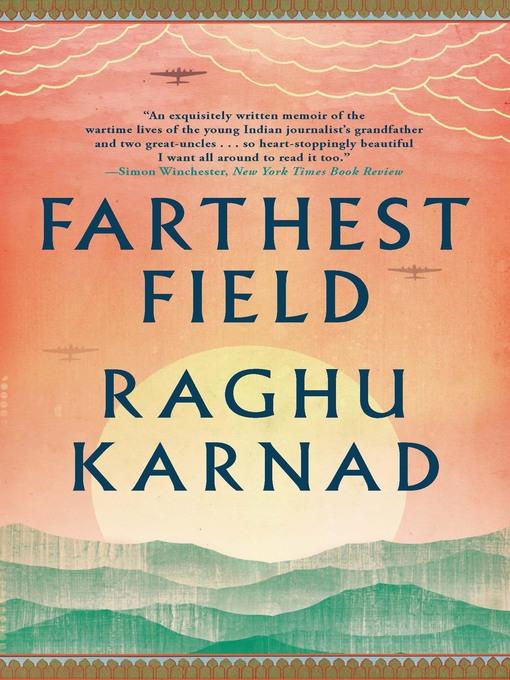
Farthest Field
An Indian Story of the Second World War
کتاب های مرتبط
- اطلاعات
- نقد و بررسی
- دیدگاه کاربران
نقد و بررسی

Starred review from June 22, 2015
Indian journalist Karnad delves into his family’s past, learning that three ancestors—ones he knew only from faded photographs—died during WWII. Their nation’s involvement in that war is largely forgotten and unrecorded. More than a personal history, Karnad’s account encompasses theaters on three continents as he uncovers diaries, logbooks, requisition orders, and correspondence from the “largest volunteer force the world had ever known.” Just as the broader outlines of India’s pre-independence, pre-partition war effort have been forgotten, individual families also tended to elide their own involvement: “Everything my grandmother could save of my mother’s, she had. But of the men, there was almost nothing.” The tense, subservient relationship with colonial Britain defined the daily rhythms of army life; Karnad’s prose, heartfelt and hauntingly poetic, evokes an India at the crossroads, sending battalions of its young men to die in defense of the British Empire even as Gandhi and Nehru laid the foundation for its independence. “Maybe the whole country was like that,” Karnad writes, “split between loyalty and liberty, subordination and treason.” Karnad shows that in fighting for Britain’s freedoms—freedoms Britain steadfastly refused to extend to Indians themselves—these forgotten soldiers wrote the final chapter of Britain’s grand and cynical colonial project. Illus.

June 15, 2015
The roles of India, China, and Burma in World War II are beginning to receive more attention after decades of neglect. Journalist and debut author Karnad explores India's complicated position in the war by sketching out the contributions of his grandfather and two of his great uncles, who all died while serving in the Indian Army. The author shows how the defeat of the British at the hand of the Japanese helped India and other colonial nations gain their independence after the war. Meanwhile, Indians who fought alongside the Allies against Germany and Japan were soon forgotten in their own nation, which preferred to remember its struggle for independence rather than its fight on behalf of the British empire. VERDICT Readers may remain skeptical of Karnad's attempt to draw a moral equivalency between Nazi fascism and British colonialism, but the tragic story of his own family members helps us to understand the moral ambiguity of even our most celebrated wars. Readers who enjoyed Madhusree Mukerjee's Churchill's Secret War: The British Empire and the Ravaging of India during World War II will find this work equally rewarding.--Michael Farrell, Reformed Theological Seminary, Orlando, FL
Copyright 2015 Library Journal, LLC Used with permission.

























دیدگاه کاربران